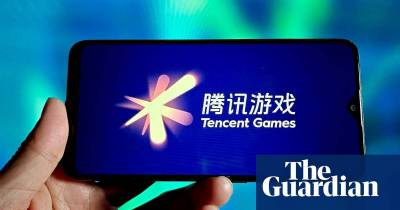The Guardian - China-Chinese gaming shares fall as regulators announce new proposals
December 27, 2023 3 min 473 words
这则报道揭示了中国政府对游戏行业的新规提案导致腾讯等公司股价大幅下跌,呈现出监管风险对投资者的巨大影响。尽管政府此前已对青少年游戏时间进行了限制,但新提案再次引起市场惶恐。这一反应突显了游戏产业对中国经济的重要性,同时也凸显了政府对于塑造社会价值观的强烈愿望。投资者应谨慎,尤其是小型游戏公司可能面临更大的冲击。政府的灵活回应显示了对产业调整的谨慎态度,但也表明监管趋势将持续存在。整体而言,这是一个彰显政府干预力度的案例,对市场产生了深远影响,未来行业发展将取决于监管与市场之间的平衡。
China’s $45bn (£31.3bn) gaming industry has been dealt a blow by proposals to limit the time and money spent on the sector.
New rules including spending limits for online games, a ban on games from rewarding players for logging in every day and a ban on lucky draw features from being offered to minors were announced by regulators last week, sparking panic among investors.
Shares in Tencent fell by more than 12% on Friday, losing more than $43bn in market value, while NetEase shares fell by more than 24%. BiliBili, a social media site that derives about 17% of its revenue from gaming, saw its shares fall by nearly 10% before the regulator on Saturday appeared to soften its stance slightly. State media said that the authorities had heard the “concerns and opinions raised by all parties”, and that there may be further “modifications and improvements” to the proposals.
China’s massive gaming sector was first targeted by regulators in 2021, as Beijing sought to curb the amount of time that young people spent playing video games. At the time, state media described video games as “spiritual opium”. Under-18s were limited to one hour of gaming per day on Fridays, weekends and holidays, a rule that was hard to enforce but which nonetheless sent the industry into a tailspin.
In 2022, the online gaming sector shrank for the first time on record.
Despite the crackdown, video games remain popular. Domestic revenue grew 13% this year. In July, the government-run industry association CGIGC said the number of gamers in China had reached a record 668 million in the first half of the year, equivalent to half of the total population. A study published this year by researchers at the University of York found that earlier restrictions, introduced in 2019 to limit gaming to 90 minutes a day, had no impact on heavy gaming.
Shares in Tencent and NetEase had recovered from their lowest levels by Wednesday on the Hong Kong stock exchange, but both are still below where they were before Friday.
Vigo Zhang, the vice-president of Tencent Games, said the company would strictly implement any new regulations.
Analysts said smaller game companies would be likely to be hit hardest by the new restrictions. About 14,000 small studios and video game firms reportedly deregistered in the second half of 2021, after Beijing’s first crackdown, during which new game approvals were halted for nearly a year.
The latest proposals include measures that will be welcomed by the industry, such as requiring regulators to process new games licences within 60 days. Beijing also approved on Friday 40 new imported games for domestic release. On Monday, a further 105 new games were approved, showing the authorities’ support for the development of online gaming, according to an industry association.
The proposals are open for public consultation until 22 January.

